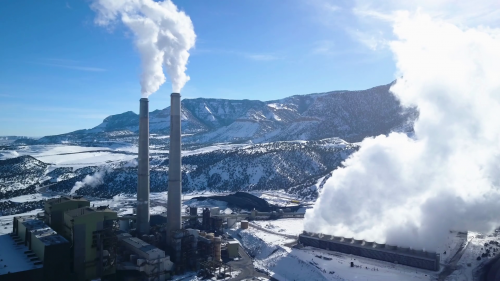Blog Post
Insight: Utah’s coal transition belongs to all of us
By: Natalie Gochnour
First published in the Deseret News
Dinosaur bones, footprints, eggs and other fossils can be found throughout eastern Utah. It is a paleontologist wonderland because here, in Utah’s coal country, the last dinosaurs came to die.
Today, another kind of extinction faces residents in Utah’s coal country. If the economies in Carbon and Emery counties don’t diversify, many family supporting jobs will become extinct.
The area faces a silent recession caused by society’s actions to combat global climate change. The benefits are widespread, but the costs are concentrated in places like eastern Utah.
I don’t think Utah’s coal country should bear these costs alone. Utah’s coal transition belongs to all of us. But right now, we are losing the battle.
Utah’s statewide prosperity stands in stark contrast to coal country. The Beehive State finished 2018 with the fastest job growth rate in the nation. If current trends continue, this June Utah will achieve the longest economic expansion in state history.
The economy in Utah’s coal country, in contrast, contracted in nine of the past 10 years. The region suffers from high unemployment, net out-migration, and housing price depreciation. Perhaps most sobering is that opioid death rates in the region are three times the national average. It’s clear current economic development practices and incentives aren’t working
Utah coal production declined by 41 percent since 2001. Imagine if similar declines where experienced by Utah’s tech industry, ski industry or Hill Air Force Base. The economic pain would generate news stories, be top of mind for state officials and lead to public policies that would soften the pain and solve the problem. This isn’t happening for eastern Utah.
The outlook isn’t much better. The region will take a double hit because the economy depends on both coal mines and two coal-fired power plants — Hunter and Huntington. Both power plants are slated for closure 10-15 years from now.
Price City Mayor Mike Kourianos understands the challenge. He was born and raised in the region and currently supervises operations at the Huntington power plant. He recently told a group of out-of-state investors: “For decades our community prospered because of the abundant natural resources, but I recognize the world is changing. Coal and coal-powered electricity have a limited life. … Our economy must diversify if we are to survive.”
Gov. Gary Herbert has taken two important steps to help with this problem. He signaled his support for rural economic development priorities by launching his 25,000 jobs initiative for rural Utah. Second, he designated an opportunity zone in Carbon County, which means the area is eligible for special tax treatment. These are two important building blocks, but it will take more.
I co-chair an effort funded by the University of Utah and the Alliance for the American Dream to help Utah’s coal country. We’ve created a “Utah Coal Country Strike Team” to develop innovative public policies. We think it’s a matter of state interest and have identified many ways to help.
First, Utah’s coal country needs an economic development transition plan that is well-researched, locally led and broadly supported. The plan should recognize the region’s significant economic assets — proximity to urban Utah, superb broadband access, spectacular natural beauty, and hardworking people — and organize them into a regional strategy. Separate county economic development plans won’t cut it.
Next, the state must completely redo economic development incentives for this region. Current incentives are obviously not working. We suggest a customized approach that prioritizes this area based on needs and strengths.
Finally, the region needs significant investment in job training, housing revitalization, and tourism infrastructure. Investment will create opportunity, prevent poverty, relieve growth pressures along the Wasatch Front and help address crowding issues in Utah’s “Mighty Five” national parks.
I join Gov. Herbert, the mayor of Price, and others in saying that Utah’s coal country needs our attention. As Utah transitions away from coal … let’s not let the people who make the greatest sacrifice be left behind.
Natalie Gochnour is an associate dean at the David Eccles School of Business and director of the Kem C. Gardner Policy Institute.

